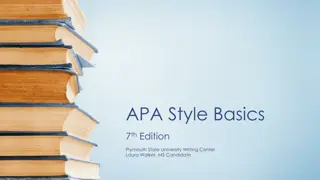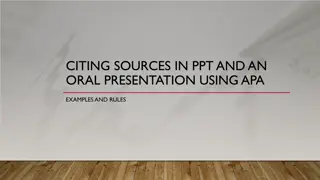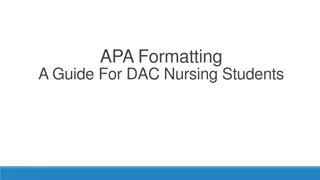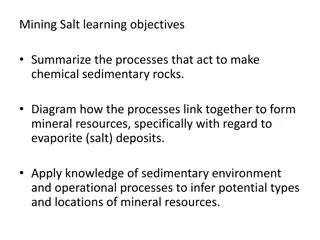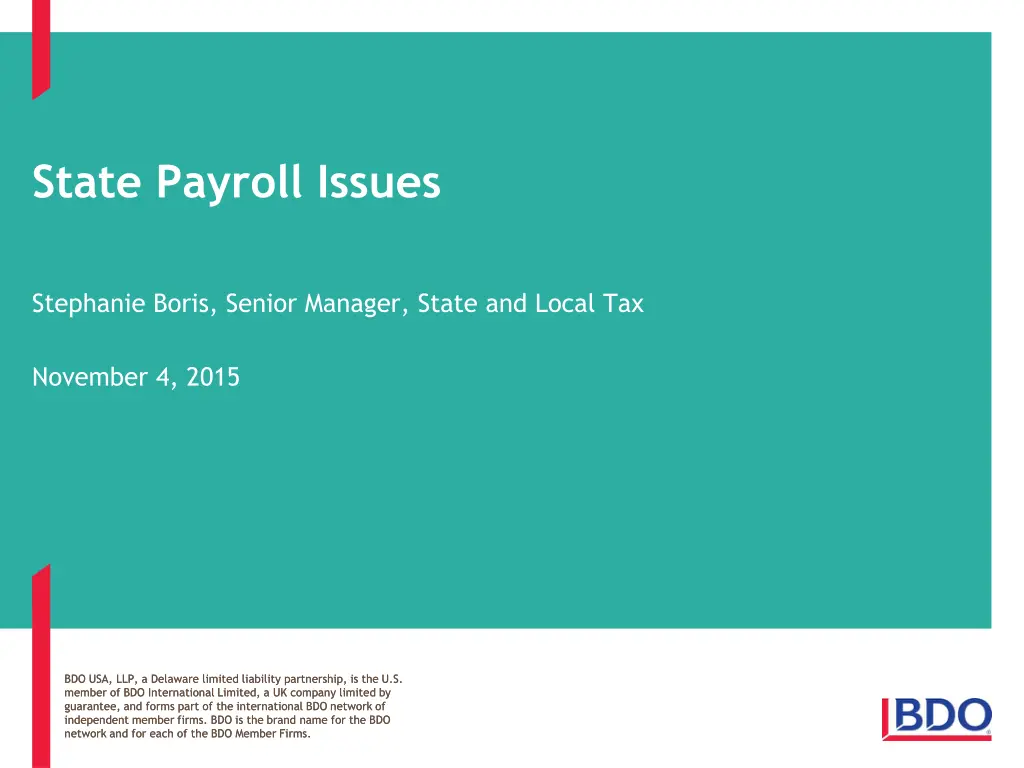
State Payroll Issues Impacting Telecommuters
Explore the implications of state payroll issues on telecommuters, including withholding for those working in a different state than their employer. Learn about proposed federal legislation to address these challenges and ensure fairness in taxation practices.
Download Presentation

Please find below an Image/Link to download the presentation.
The content on the website is provided AS IS for your information and personal use only. It may not be sold, licensed, or shared on other websites without obtaining consent from the author. If you encounter any issues during the download, it is possible that the publisher has removed the file from their server.
You are allowed to download the files provided on this website for personal or commercial use, subject to the condition that they are used lawfully. All files are the property of their respective owners.
The content on the website is provided AS IS for your information and personal use only. It may not be sold, licensed, or shared on other websites without obtaining consent from the author.
E N D
Presentation Transcript
State Payroll Issues Stephanie Boris, Senior Manager, State and Local Tax November 4, 2015 BDO USA, LLP, a Delaware limited liability partnership, is the U.S. member of BDO International Limited, a UK company limited by guarantee, and forms part of the international BDO network of independent member firms. BDO is the brand name for the BDO network and for each of the BDO Member Firms. network and for each of the BDO Member Firms. BDO USA, LLP, a Delaware limited liability partnership, is the U.S. member of BDO International Limited, a UK company limited by guarantee, and forms part of the international BDO network of independent member firms. BDO is the brand name for the BDO
Agenda Withholding for telecommuters Living in one state; performing work in another Impact of payroll on nexus and apportionment Unclaimed property APA - Western PA Chapter 11.4.15 Page 2 Page 2
Withholding for telecommuters What is a telecommuter? - An employee who works from a remote location outside of a traditional office When is this an issue for state income tax withholding? - When the employee works in a state that is different than the state in which the employer s office is located Where to withhold - Generally where services are performed by the employee - In the case of a telecommuter: resident state - Exceptions: Look at the state taxation of nonresidents - Convenience of the employer rule (NY, NE, PA): if employer is in NY and employee is working in another state for convenience (rather than necessity), income is sourced to NY - Typically credit for taxes paid in other states allowed in resident state - Exception example: CT does not allow a credit for taxes paid to NY on earnings for work performed in CT because CT does not recognize NY s right to tax the income (NJ does allow) APA - Western PA Chapter 11.4.15 Page 4 Page 4
Withholding for telecommuters Proposed Federal Legislation - Telecommuter Tax Fairness Act - Introduced every year since 2004 never enacted - Would prohibit states from applying the convenience of employer test - Multi-State Tax Worker Fairness Act - Introduced 2014 not enacted - Avoids the double-taxation potential; have to be physically in the state APA - Western PA Chapter 11.4.15 Page 5 Page 5
Living in one state; performing work in another Term = mobile workforce Employee business travel can result in a state personal income tax filing requirement for the employee, as well as a withholding or reporting requirement for the employer States have not reached a consensus regarding the threshold level of in-state activity that triggers a tax obligation = significant administrative burden Analysis for mobile employees: - Determine state of residency - Determine whether a reciprocity agreement exists - Evaluate each state s resident/nonresident taxation policies APA - Western PA Chapter 11.4.15 Page 7 Page 7
Living in one state; performing work in another APA - Western PA Chapter 11.4.15 Page 8 Page 8 Source: COST Mobile Workforce Briefing Book (Sept. 9, 2009)
Living in one state; performing work in another Proposed Federal Legislation - Mobile Workforce State Income Tax Simplification Act - Introduced each year since 2012 not enacted - Prohibits a state from taxing a nonresident employee s wages unless the nonresident employee works in the state > 30 days during a calendar year - Exempts the employer of a covered employee from any withholding or reporting requirements - Does not apply to professional athletes, professional entertainers, and certain public figures Multistate Tax Commission model statute - Model Mobile Workforce Withholding and Individual Income Tax Statute - Employer is not required to withhold personal income tax on a nonresident employee s compensation if < 20 work days in a state - Traveling employee is not required to pay tax to the source state as long as the employee has no other income attributable to the state - Exceptions to the 20-day rule apply to professional athletes and entertainers, construction workers, and certain key employees APA - Western PA Chapter 11.4.15 Page 9 Page 9
Impact of payroll on nexus and apportionment
Impact of payroll on nexus and apportionment Nexus = the term used to describe the types of contacts necessary to establish a state s right to impose an income tax obligation - Generally: A corporation is subject to tax in the state in which it is incorporated, and also may be subject to tax in any other states in which its property, employees, or other agents are physically present on a regular and systematic basis Solicitation of sales protected for income tax - Public Law 86-272 prohibits a state from taxing the income of an out-of-state corporation (i.e., a corporation that is not incorporated in the taxing state) if the corporation s only in-state activity is solicitation of orders by company representatives for sales of tangible personal property, which orders are sent outside the state for approval or rejection and, if approved, are filled by shipment or delivery from a point outside the state APA - Western PA Chapter 11.4.15 Page 11 Page 11
Impact of payroll on nexus and apportionment Telecommuters and mobile workforce performing corporate (i.e., non-sales solicitation) activities = nexus - Examples of non-sales activities: accounting, recruiting, marketing, software development Factor presence nexus - Example: a corporation has substantial nexus in a state if it is organized or commercially domiciled in the state, or if the property, payroll or sales of the corporation in the state exceeds one of the following thresholds: $50,000 of property, $50,000 of payroll, $500,000 of sales, or 25 percent of total property, total payroll or total sales - CA, CO, NY, OH, WA - PL 86-272 protection still trumps APA - Western PA Chapter 11.4.15 Page 12 Page 12
Impact of payroll on nexus and apportionment Apportionment - Method used to determine the amount of income subject to tax in a state (FTI +/- state modifications = state taxable income; state taxable income x apportionment = income subject to tax) - May consist of a property factor, a payroll factor, and a sales factor - Trend has been to heavily weight the sales factor or use only a sales factor - Payroll factor - Numerator = compensation paid in the state - Sourcing (MTC rules) - Where the service is performed - If performed in more than one state, source to base of operations - As a practical matter: states want to tie to state unemployment compensation reports - Denominator = compensation paid everywhere - APA - Western PA Chapter 11.4.15 Page 13 Page 13
Unclaimed property All 50 states and the District of Columbia have enacted unclaimed property laws The purpose of unclaimed property laws is to ensure the protection of abandoned property until the rightful owner is located; states use any derivative funds earned on such property for the public good Unclaimed property is not considered a tax States actively pursue unclaimed property as an additional source of revenue for the state, which avoids raising taxes Generally intangible personal property for which there has been no owner activity for a specified period of time ( i.e., dormancy period ) APA - Western PA Chapter 11.4.15 Page 15 Page 15
Unclaimed property Examples of unclaimed property: Uncashed payroll or commission checks Uncashed payable/vendor checks Gift certificates/gift cards Customer merchandise credits, layaways, deposits, refunds or rebates Overpayments/unidentified remittances Suspense accounts Unused/outstanding benefits (non-ERISA) Credits written off to miscellaneous income/bad debt expense accounts APA - Western PA Chapter 11.4.15 Page 16 Page 16
Unclaimed property The U.S. Supreme Court in Texas v. New Jersey, established the following unclaimed property jurisdictional priority rules: First, to the state of the owner s last known address, if known, or Second, to the state of the holder s corporate domicile (i.e., state of incorporation for incorporated entities and state of formation/principal place of business for unincorporated entities). Priority rules in Texas v. New Jersey were re-affirmed in the subsequent cases Pennsylvania v. New York (escheat of money orders) and Delaware v. New York (unclaimed dividends and interest). APA - Western PA Chapter 11.4.15 Page 17 Page 17
BIOGRAPHY Stephanie Boris has more than 15 years of professional experience providing tax, legal and financial consulting services to a variety of clients. She provides tax and business consulting services for clients primarily in the manufacturing, professional services, energy, financial services and pharmaceutical sectors. Stephanie provides the following services to her clients: advise companies related to various state taxes, including income, franchise, gross receipts and realty transfer; state tax audit and controversy support; assist in determining implications of restructuring, acquisitions, divestitures and other transactions; review state tax returns for potential filing positions, refund opportunities and general state tax efficiencies; and assist with compliance among the states, including ruling requests, amnesty programs and/or voluntary disclosures. STEPHANIE BORIS, JD Senior Manager, State & Local Tax Direct: 412-315-2428 Email: sboris@bdo.com EDUCATION J.D., Law, Duquesne University School of Law B.S., Business Administration, Duquesne University School of Business APA - Western PA Chapter 11.4.15 Page 18 Page 18










